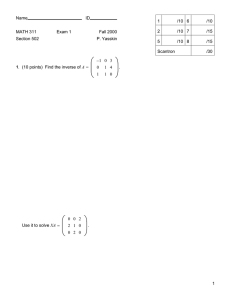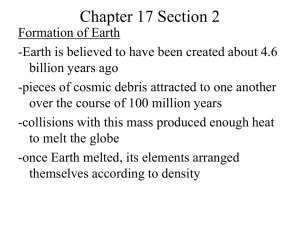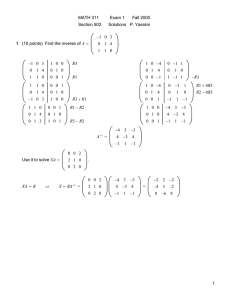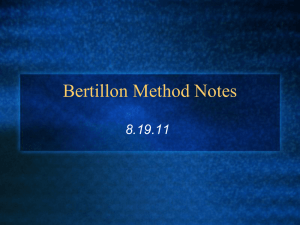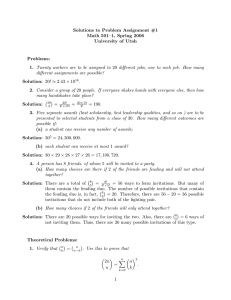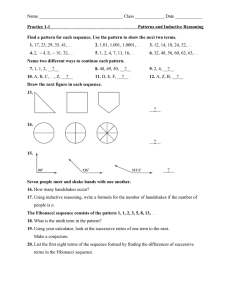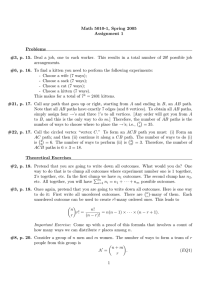Solutions to Homework #1 Mathematics 5010–1, Summer 2006 May 24, 2006
advertisement
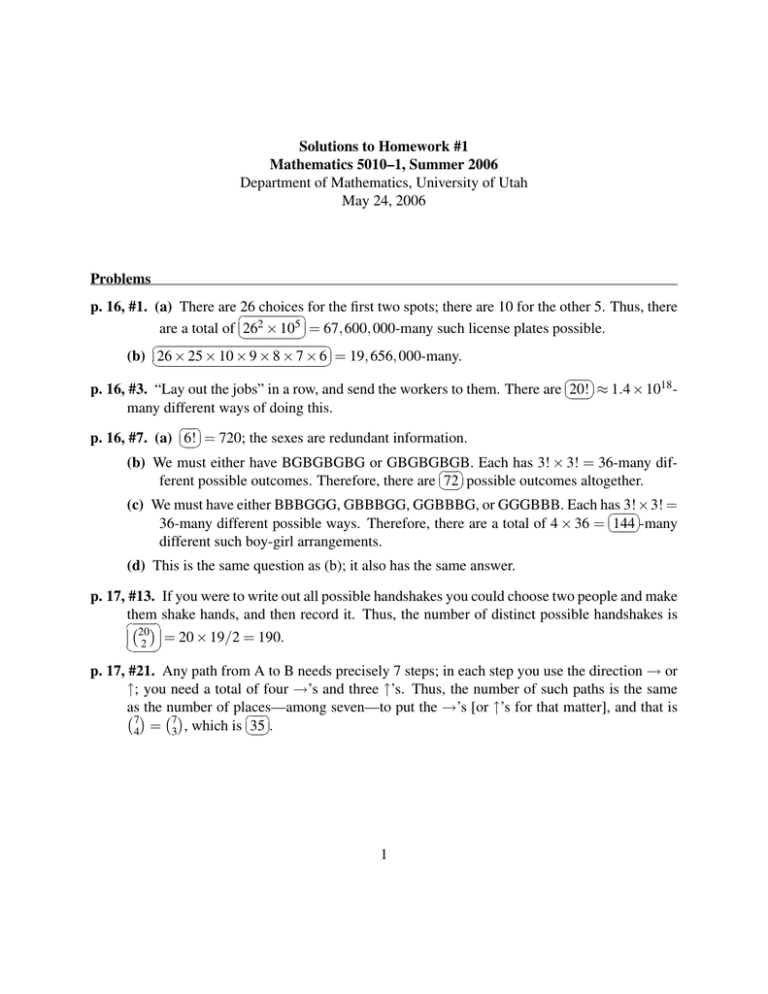
Solutions to Homework #1 Mathematics 5010–1, Summer 2006 Department of Mathematics, University of Utah May 24, 2006 Problems p. 16, #1. (a) There are 26 choices for the first two spots; there are 10 for the other 5. Thus, there are a total of 262 × 105 = 67, 600, 000-many such license plates possible. (b) 26 × 25 × 10 × 9 × 8 × 7 × 6 = 19, 656, 000-many. p. 16, #3. “Lay out the jobs” in a row, and send the workers to them. There are 20! ≈ 1.4 × 1018 many different ways of doing this. p. 16, #7. (a) 6! = 720; the sexes are redundant information. (b) We must either have BGBGBGBG or GBGBGBGB. Each has 3! × 3! = 36-many different possible outcomes. Therefore, there are 72 possible outcomes altogether. (c) We must have either BBBGGG, GBBBGG, GGBBBG, or GGGBBB. Each has 3!×3! = 36-many different possible ways. Therefore, there are a total of 4 × 36 = 144 -many different such boy-girl arrangements. (d) This is the same question as (b); it also has the same answer. p. 17, #13. If you were to write out all possible handshakes you could choose two people and make them shake hands, and then record it. Thus, the number of distinct possible handshakes is 20 = 20 × 19/2 = 190. 2 p. 17, #21. Any path from A to B needs precisely 7 steps; in each step you use the direction → or ↑; you need a total of four →’s and three ↑’s. Thus, the number of such paths is the same asthe number of places—among seven—to put the →’s [or ↑’s for that matter], and that is 7 7 35 . 4 = 3 , which is 1 Theoretical Exercises p. 19, #8. In this exercise, n and m are assumed to be positive integers, and r is a positive integer that is less than or equal to m and n. Note that: 0. There are n0 mr -many teams that have exactly zero men in them. m -many teams that have exactly one man in them. 1. There are n1 r−1 m -many teams that have exactly two men in them. 2. There are n2 r−2 .. . r. There are n m r 0 -many teams that have exactly r men in them. Therefore the total number of different teams of r people is n m n m . +···+ 0 r r 0 On the other hand, we know that the number of teams of size r is n+m r . Therefore, the display must be equal to n+m , whence follows the assertion of the exercise. r 2
